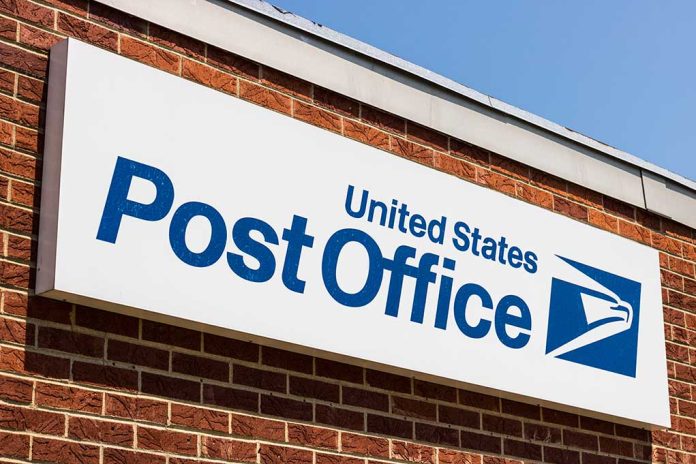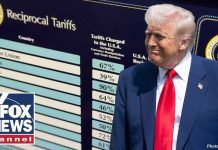
Former FedEx board member David Steiner’s appointment as the new USPS Postmaster General triggers fierce union backlash over privatization fears amid the Postal Service’s staggering $9.5 billion loss.
Key Takeaways
- David Steiner, former Waste Management CEO and FedEx board member, has been appointed as the next Postmaster General of USPS, with his term expected to begin in July 2024.
- USPS is struggling financially, reporting a $9.5 billion loss in fiscal year 2024 and a net loss of $3.3 billion in the second quarter alone.
- Multiple postal unions have strongly opposed Steiner’s appointment, citing conflicts of interest with his FedEx ties and fears of privatization under President Trump’s administration.
- Steiner will lead the USPS’s ongoing 10-year “Delivering for America” plan, which aims to revitalize the Postal Service through operational changes and new service offerings.
- First-Class Mail Forever stamps are proposed to increase from 73 cents to 78 cents, part of broader price increases across USPS services effective July 13.
Corporate Executive Tapped to Lead Struggling Postal Service
The United States Postal Service has named David Steiner, a FedEx board member and former CEO of Waste Management, as its next Postmaster General and CEO. Steiner is set to take the helm of the financially struggling agency in July 2024, pending completion of ethics and security clearance processes. The appointment comes as USPS faces mounting financial challenges, having lost $9.5 billion in fiscal year 2024 and reporting a net loss of $3.3 billion in the second quarter alone, with controllable losses of $848 million.
Steiner will be responsible for overseeing the continuation of the agency’s 10-year “Delivering for America” plan, aimed at revitalizing postal operations through new offerings and operational changes. As part of his transition to the role, Steiner has committed to divesting his significant stake in FedEx, where he currently owns 34,438 shares, and will resign from the company’s board before assuming his USPS position.
David Steiner, a former CEO of the nation's largest waste management company who currently serves on the FedEx board of directors, is poised to take over control of the U.S. Postal Service, becoming the nation's 76th postmaster general.https://t.co/9EV8mEetg3
— CBS News (@CBSNews) May 10, 2025
Union Opposition and Privatization Concerns
The appointment has sparked significant controversy among postal worker unions, who view Steiner’s corporate background and FedEx ties as deeply problematic. The National Association of Letter Carriers has been particularly vocal in its opposition, characterizing the selection as a blatant conflict of interest. Critics fear the appointment signals President Trump’s intention to pursue privatization of the postal service, a concern heightened by previous administration discussions about potential USPS restructuring.
“His selection isn’t just a conflict of interest—it’s an aggressive step toward handing America’s mail system over to corporate interests,” said Brian Renfroe, president of the National Association of Letter Carriers.
Democratic Representative Gerry Connolly echoed these concerns, calling the appointment “a blatant conflict of interest and an attempt by President Trump to install a handpicked loyalist.” Meanwhile, the American Postal Workers Union’s president, Mark Dimondstein, pointed to the importance of maintaining USPS independence, stating, “No president, past, present or future, should have any say in who leads the independent Postal Service.”
It’s Official: Steiner to be Next PMG
David Steiner has been officially named as the next postmaster general and CEO of the United State Postal Service.https://t.co/5w7KrpHG5c#NSRMCA #USPS #PMG
— National Star Route Mail Contractors Association (@nsrmca) May 9, 2025
Steiner’s Vision and Rate Increases
Despite the opposition, Steiner has expressed commitment to maintaining the Postal Service’s independence. In public statements, he has emphasized his respect for the institution and its critical public service mission. The incoming Postmaster General faces the immediate challenge of addressing operational inefficiencies while navigating contentious relationships with postal worker unions, who remain skeptical of his corporate background.
“I deeply admire the public service and business mission of this amazing institution, and I believe strongly in maintaining its role as an independent establishment of the executive branch,” said David Steiner, incoming USPS Postmaster General.
Adding to the challenges facing the new leadership are proposed price increases across USPS services, scheduled to take effect on July 13. These include raising the cost of a First-Class Mail Forever stamp from 73 cents to 78 cents, along with increases for Priority Mail, USPS Ground Advantage, and Parcel Select services. The price hikes come as service metrics show declining performance, with First-Class Mail on-time delivery dropping to 82% this quarter from 84% the previous year.
Future of Postal Operations Under Trump Administration
Steiner’s appointment takes place against the backdrop of President Trump’s plans to reshape federal agencies. The administration has previously considered privatizing portions of the Postal Service and potentially merging it with the Commerce Department. Further influencing the direction of USPS, Trump plans to nominate Anthony Lomangino, a Republican donor, to the agency’s governing board, which could shift its political composition significantly.
The National Postal Mail Handlers Union has taken a more measured approach to Steiner’s appointment, expressing cautious willingness to work with the new Postmaster General while emphasizing their focus on protecting members and promoting USPS sustainability. Paul Hogrogian, president of NPMHU, has indicated the union will educate Steiner on mail handlers’ needs and closely monitor any network changes that might impact service standards.
As Steiner prepares to take office in July, the future of America’s postal service hangs in the balance, with unions, management, and the administration engaged in an intensifying struggle over its direction, funding, and very purpose in American society.



